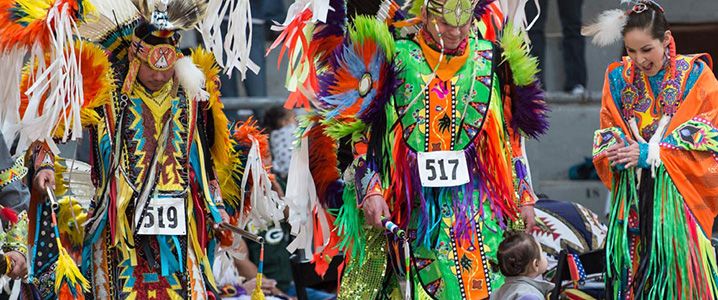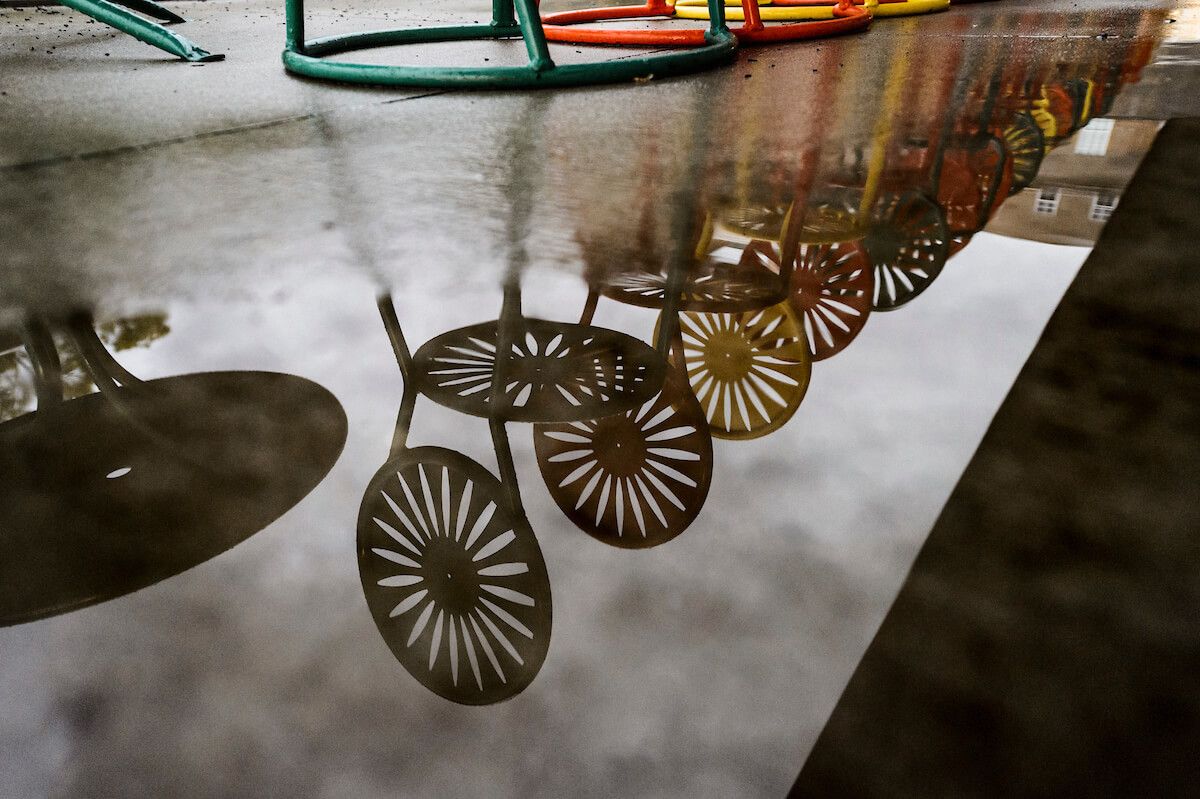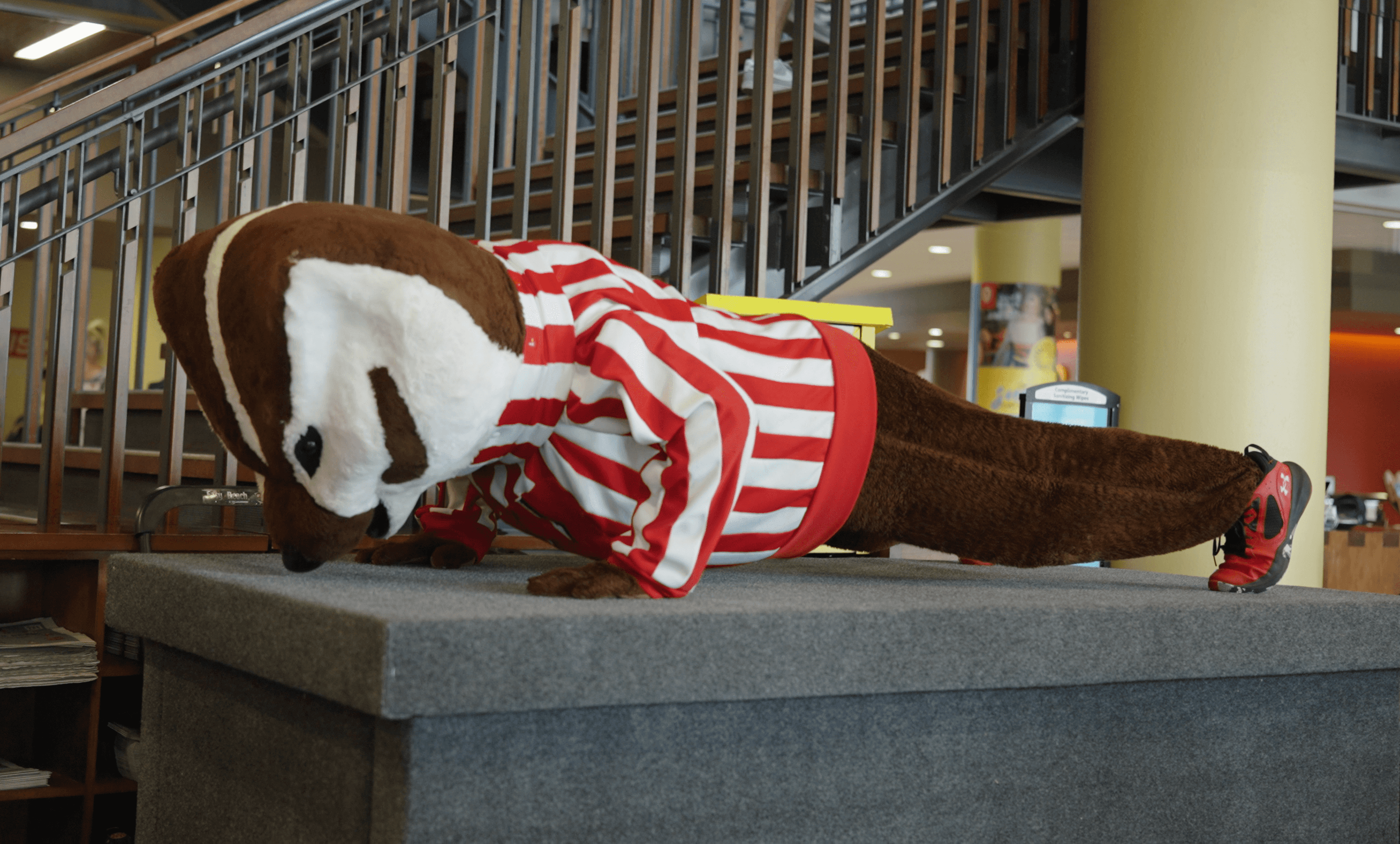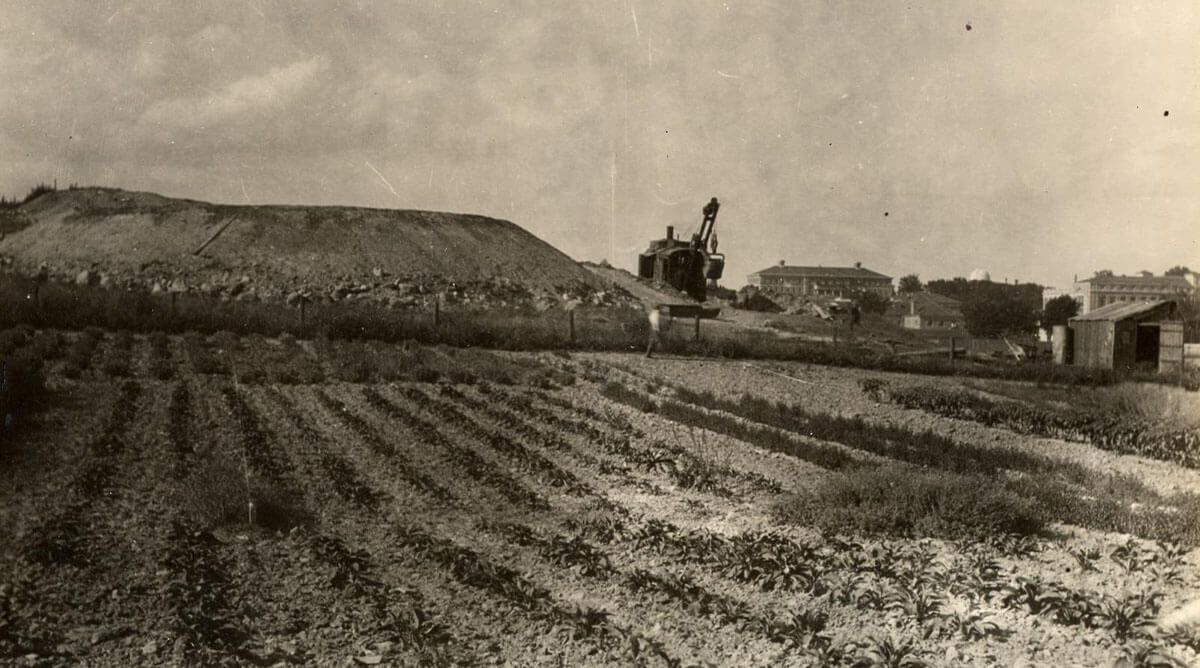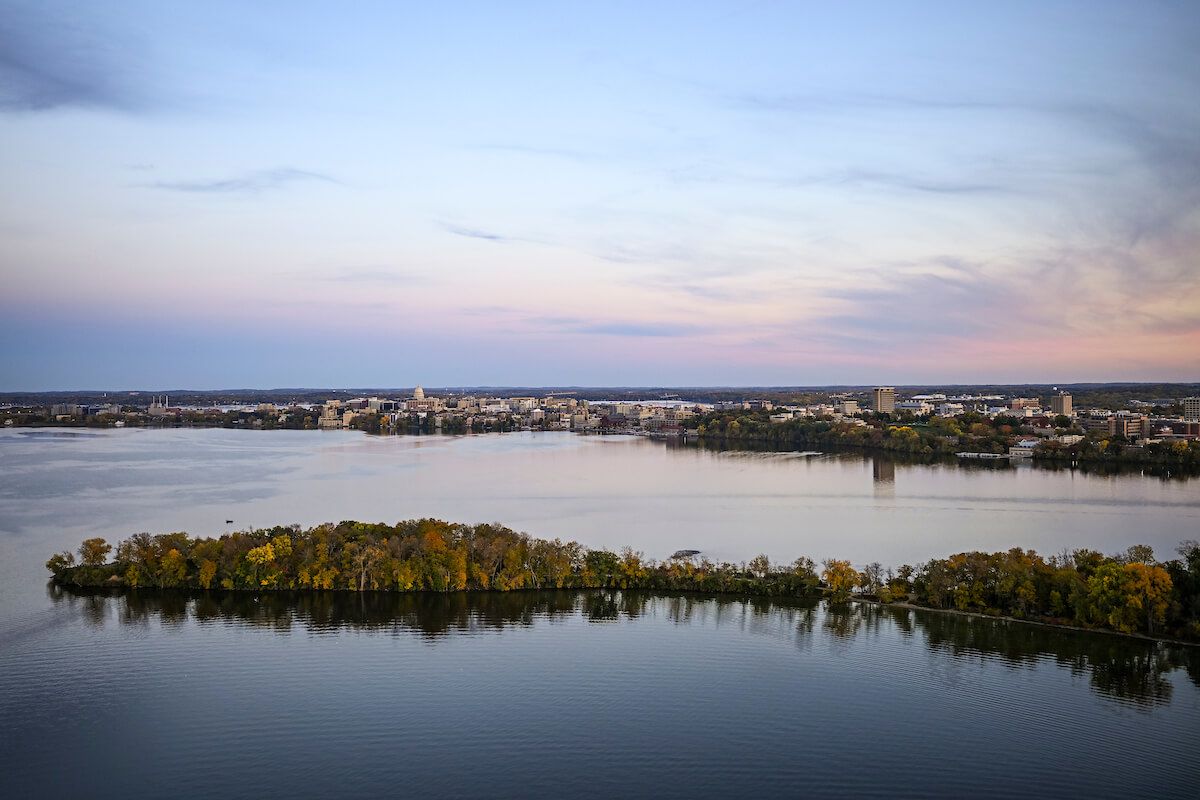You could try to take a picture, but chances are you’d be unsuccessful. The feathers, beads, and colors simply moved too quickly at April 11ths On Wisconsin Annual Spring Powwow. The layering of sounds was as intricate as the textures, with the rattling of jingle dress dancers seeping through scattered drumbeats.
As the sun was setting behind Picnic Point and flocks of students were trading their textbooks for Terrace chairs, the UW Field House made way for the Grand Entry—the official start of the powwow.
During the Grand Entry, all spectators rose as the participants took to the floor. A Ho-Chunk spiritual elder led the convocation, offering blessings and prayers in the traditional language. The Entry began with the entrance of the flags: the American Flag, Tribal Flags, and POW-MIA Flags, carried by military veterans. As the veterans were thanked for their service, a drum circle to the right of the announcers played the Veterans Honor Song. The Entry progressed with powwow organizers and royalty, and continued until all participants were dancing in a circle.
The scene on the floor ran gracefully and smoothly, but behind the scenes, members of the organizing committee, UW-Madison’s Wunk Sheek student organization, knew it wasn’t an effortless affair at all.
The saturated atmosphere of the field house during the Powwow is a stark contrast to the small, unassuming house on North Brooks Street, where the American Indian Student and Cultural Center is housed. While the faint sounds of a drum circle trickle down through the ceiling, Wunk Sheek members arrive at the organization’s post-powwow meeting.
Wunk Sheek was founded in 1968, with a simple goal. “We’re trying to bridge the gap between UW-Madison and the Native community,” says Sam Pecore, president of Wunk Sheek. According to the group’s Facebook page, the low population of Natives on campus raises the need to educate the majority population on American Indian culture. To do so, Wunk Sheek holds two large powwows each year and organizes numerous events in November for American Indian Heritage Month.
After several boxes of mac ‘n cheese pizza from Ian’s arrive, Pecore begins the meeting. “Mainly, this is to celebrate that we got through it,” she starts, receiving cheers from club members, “and to get anyone’s feedback.” She says that responses from attendees and the general public have been largely positive, “but I know y’all are gonna be real with me,” Pecore says, half-joking.
There are a few signage issues to be corrected for next year, as well as some different ideas for set-up and vendors. But largely, the students seem pleased with how the event turned out. There were 107 total Grand Entry dancers, which was higher than past years. One major draw for attendees is the powwows competition aspect. Most powwows don’t have contests, but Wunk Sheek offers cash prizes for dancers, singers, and drummers.
The powwow is also an opportunity for Wunk Sheek to demonstrate its original mission of outreach and inclusion. For example, the veterans in the Grand Entry were all from the Ho-Chunk tribe. “We always honor Ho-Chunk, because we’re on their land,” explains Pecore, but this time they also honored Oneida. “We try to switch it up between the various tribes. We’re just trying to be inclusive,” she says, looking around the room. “All of us are from different tribes.”
As for next year, many things are still up in the air. “We’re trying to get Bear Creek [drum group] for next year,” says the club’s vice president Emily Nelis, which is met by a massive “oooooh” from the other students. The kids corner, a resounding success, will likely return for next year.
The biggest question right now is the location. Union South is unlikely, for lack of parking and transportation options. “It used to be at the Shell. It used to be at the Fieldhouse,” says Pecore. “It used to be at the Kohl Center, back when we had money.”
Though registration at this year’s event was high, donations were lower than past years. The event is entirely funded on donations — from venue rental to t-shirt printing to competition prize money — and the group brought in under $3000 this year. “It’s because I didn’t decorate the box!” jokes member Trish Post.
Serious planning for the 2016 On Wisconsin Annual Spring Powwow won’t really start until winter break. But as the club moves forward, finances are certainly one of their biggest obstacles. They may have to look at once again changing venues, or altering details such as vendor fees and t-shirts. Strengthening a connection with the community and gaining support from UW-Madison would also help. Or, maybe, they’ll just let Trish decorate the donation box.
